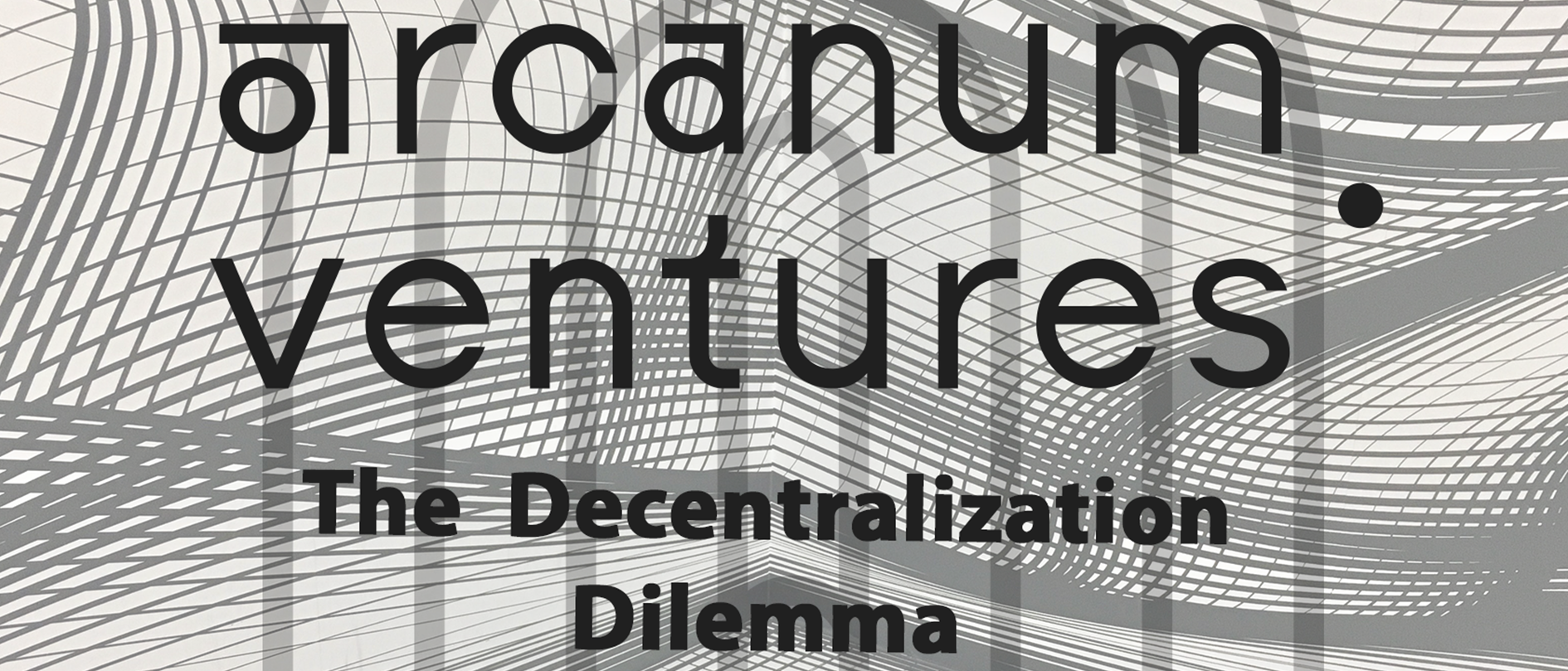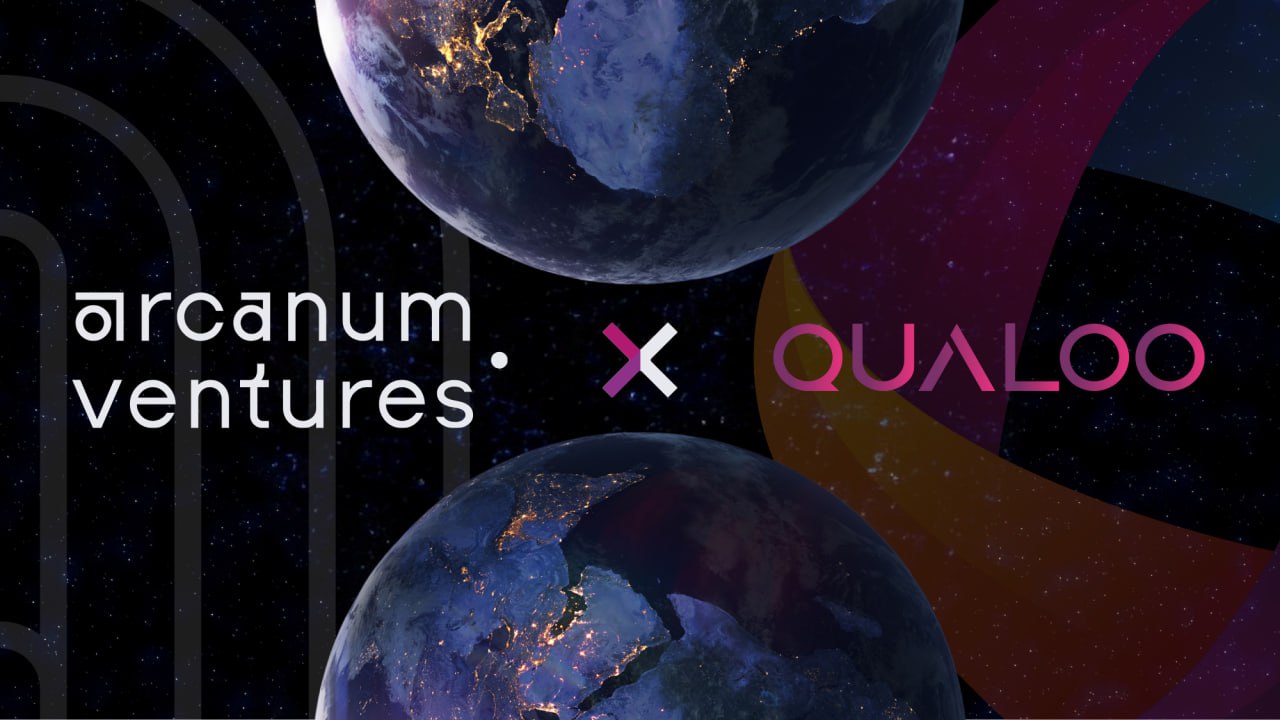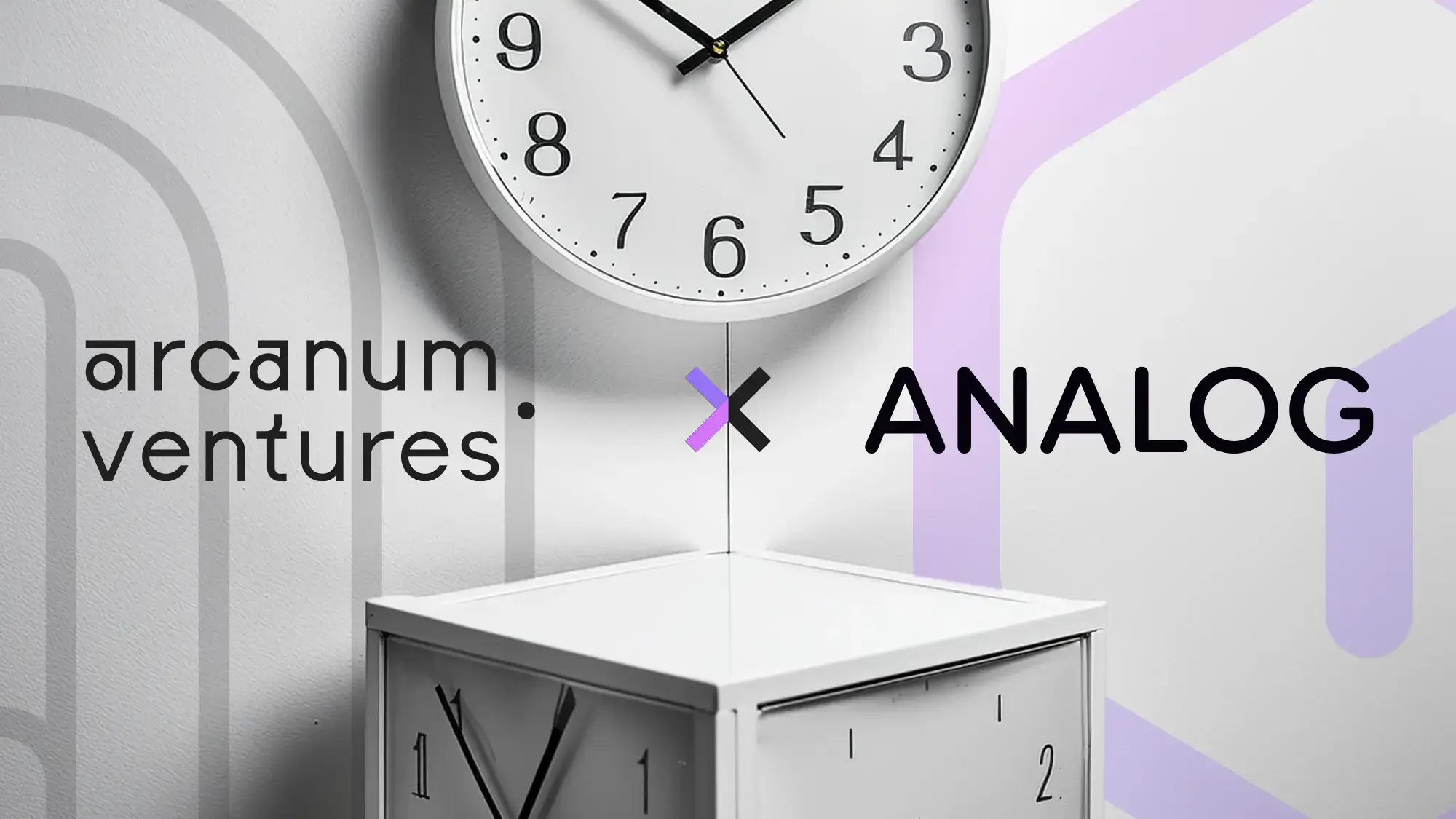Arcanum Ventures
Arcanum Ventures is a venture capital investment firm, blockchain advisory service, and digital asset educator. We bring precise knowledge and top-tier expertise in advising blockchain startups.
Arcanum demystifies the blockchain space for its partners by providing intelligent, poised, crystal clear, and authentic input powered by our passion to empower and champion our allies.
We unravel the mysteries and unlock the opportunities in blockchain, Web3, and other emerging innovations.
The Decentralization Dilemma
Despite being the clarion call and the article of faith when it comes to blockchain, defining decentralization is not as easy as it seems. Diverse views and definitions have been pronounced over time, but a safe place to start addressing the decentralization question is to begin with its antonym, centralization.
Be it technology, government, resources, or power, the gradual but seemingly irreversible realization for a millennium is that centralized entities are not inherently good and that they do not work well for the betterment of the many against the few.
The idea of decentralization stems from the simple idea of anything that is not organized, managed, developed, or controlled by a single entity. The nuances and variations however start from here. Vitalik Buterin segments decentralization into three separate categories:
- Architectural Decentralization: This can be explained as how many building blocks, cells, or computers make up a network/system as well as what percentage of those building blocks malfunctioning that it (the system), can tolerate without grinding to a halt.
- Political Decentralization: How many individuals or organizations control pocket shares of the building blocks in the above example.
- Logical Decentralization: Does the data and interface structures of the system behave like a hive or as an inflexible unitary entity. Additionally, if we divide the system into two sections, will each half continue to operate as a functional and independent unit?
The Importance of Decentralization for the Sake of Equity
Ushering in the new era of better quality capitalism is a key goal for Arcanum Ventures, and decentralization is the master ingredient to help us achieve that. Far beyond the borders of the blockchain space, decentralization is playing a critical role in redefining the possible and is on course to liberate swathe sections of the world’s population from the chains of economic inequality. Although still in the infant stages of an ideal framework, there is not doubt that decentralization is a critical tool for creating more efficient and robust systems and governance
Decentralization Outside of These Walls
Beyond rhetoric, how does decentralization affect industries beyond the borders of crypto and solve intractable problems within these traditional spaces?
Here are a few examples…
Bridging Infrastructure Gaps In Mobility
Moving from one point to another is a major hassle in developing countries where the infrastructure is fragile and resources scarce. With decentralization, we can imbue a spirit of constructive collaboration between mobility providers. Working under a democratized and open mobility ecosystem, decentralization offers a seamless end-to-end journey experience for commuters. Where one mobility provider cannot reach due to infrastructure gap or other peculiar limitations, another provider can step in and complete the journey for them.
Equity for Content Creators
Centralized platforms relinquish ownership from content creators, maintaining decision making ability and autonomy of monetization. Communities have seen plenty of instances where platform founders may shift terms of their monetization policy or restrictions around content listing .This is especially common in the user-acquisition phase where community members can benefit from more profitable models that are later changed to a more profitable business model for the custodians once the platform reaches critical mass. Decentralized systems empower the creators to retain ownership of their content and remain unaffected by the whims of corporations to stay in business and remain profitable.
Addressing Social Corruption
The downfall of mega-rich centralized financial institutions in 2008 causing untold hardship on the populace was a watershed moment. Centralized systems in the financial industry are rigged for the few at the top across the rest of the population. Decentralization in all facets of finance will promote a more inclusive system in every overarching decision in the financial industry. The general populace may receive the support they need in the face of a financial disaster rather than the few in the corridors of power today receiving massive bailouts and ludicrous bonuses.
Elections in Young Democracies
The greatest challenge for developing democracies is often a fair and transparent election system. The problems with centralization are showcased in these outdated, legacy systems that are controlled by the unaccountable few wielding the power to declare victor. With the help of effective decentralization and other aiding technologies such as biometric identity, the developing world inches towards a safe, verifiable, and wholly credible election system.
Aligning with our Vision
Transportation and Identity
Collaboration, not aggregation! That is the motto of an emerging mobility industry solutions provider, bloXmove, a project solidly built on the decentralization ethos. Using emerging technologies like blockchain and decentralized identifiers (DIDs), bloXmove is creating a global network of power and mobility providers, collaborating to promote a more efficient mobility industry, while developing a cleaner, more sustainable energy industry with the ability to store renewable energy using electric vehicles as rolling batteries.
Store of Value
For the exchange of value, Bitcoin and Ethereum are excellent examples of why decentralization is an essential element for healthy and trustable economic structures. As they are neither controlled nor influenced by any government or corporate entity, both Bitcoin and Ethereum have consistently proven to be dependable and incorruptible stores of value – indiscriminate of the currency holder.
Ownership and Equity
Community is the centerpiece of the looming success of decentralization. A case in point is Wikipedia Vs. Encarta in the early 2000s. While Encarta was a better developed product initially, Wikipedia focused on community-governed principles and guaranteed active community participation to power its rapid development. In a similar vein, we see projects like OpenFabric.ai and Ocean Protocol as good examples of a community-sourcing creation and development, while participants are fairly compensated for their work within a decentralized protocol.
What Does This Mean for Us?
Decentralization is allowing us to unlock the unexplored lengths and breaths of wealth creation. It is also enabling the equal distribution of the said generated wealth.
At Arcanum Ventures, we believe in a more equitable system powered by the community and decentralization helps in no short order in our progress towards this reality. However, this is not a zero-sum game. We don’t ascribe that decentralization is the silver bullet to solve every economic, governance, or societal problem.
Decentralization is not a one-size-fits-all solution for every business model, industry, or system, but we strongly believe that there is something that every system can learn from the inherent benefits of a more open, better democratized, and more transparent arrangement with the help of some level of decentralization.
To learn more about decentralization or other topics in the blockchain industry, be sure to follow Arcanum Ventures on our social channels.
Arcanum Ventures
Arcanum Ventures is a venture capital investment firm, blockchain advisory service, and digital asset educator. We bring precise knowledge and top-tier expertise in advising blockchain startups.
Arcanum demystifies the blockchain space for its partners by providing intelligent, poised, crystal clear, and authentic input powered by our passion to empower and champion our allies.
We unravel the mysteries and unlock the opportunities in blockchain, Web3, and other emerging innovations.
April 16, 2024
Transparency and accountability - two principles blockchain is rooted in, and two core tenets of Arcanum…
April 11, 2024
Arcanum Ventures is proud to announce our long-term support and incubation for Qualoo and its team. Their…
April 4, 2024
Arcanum Ventures is pleased to announce our latest strategic investment in Analog, a novel ‘Proof-of-Time’…



